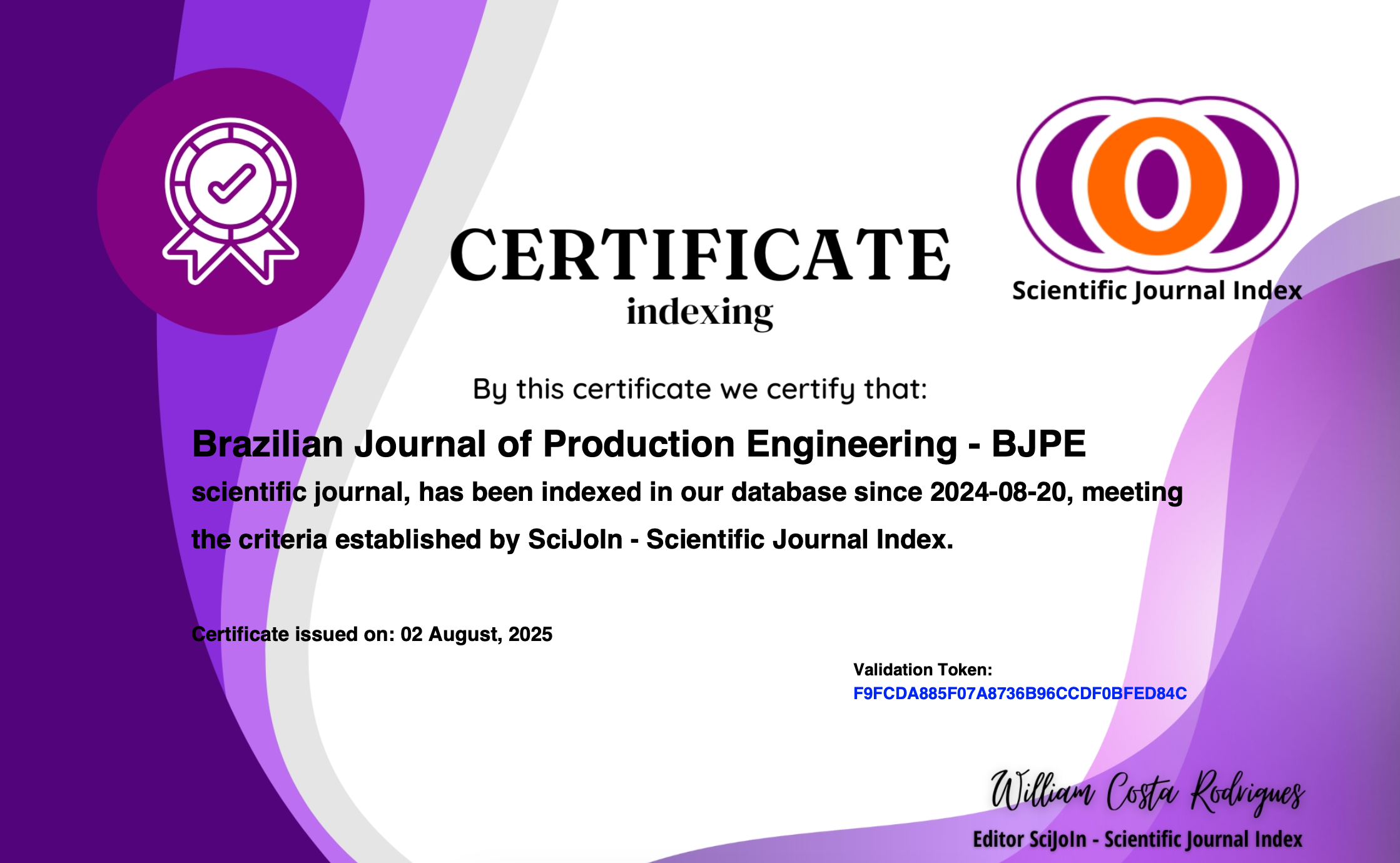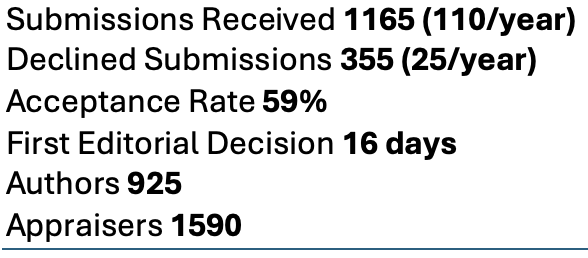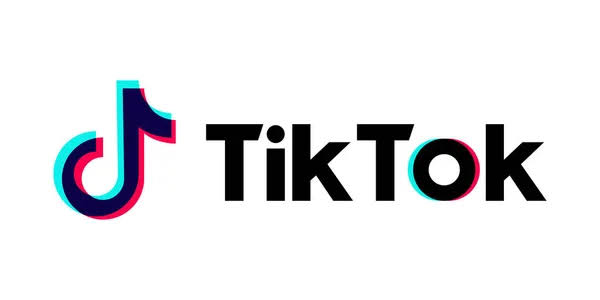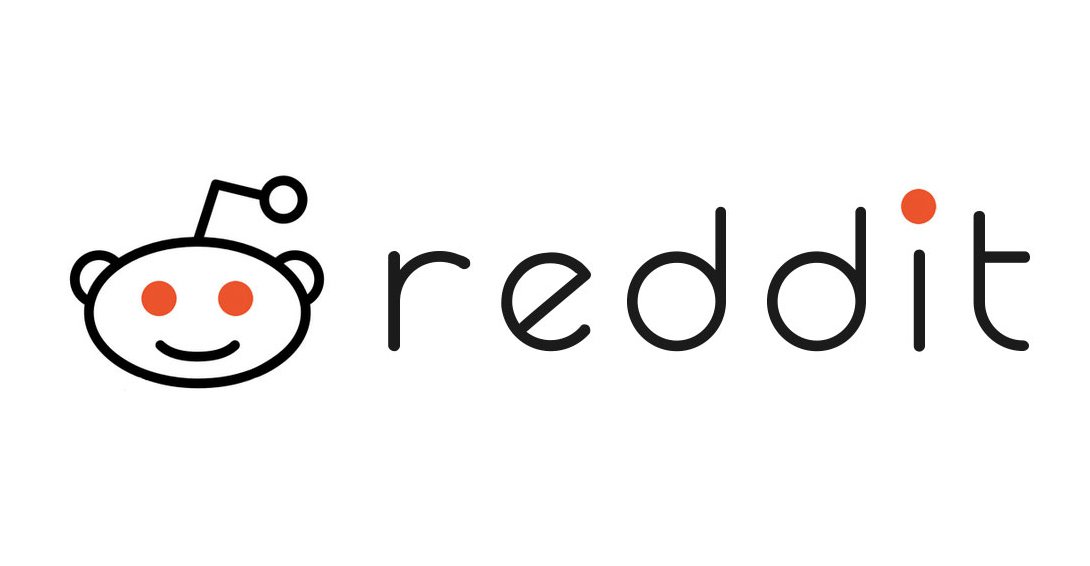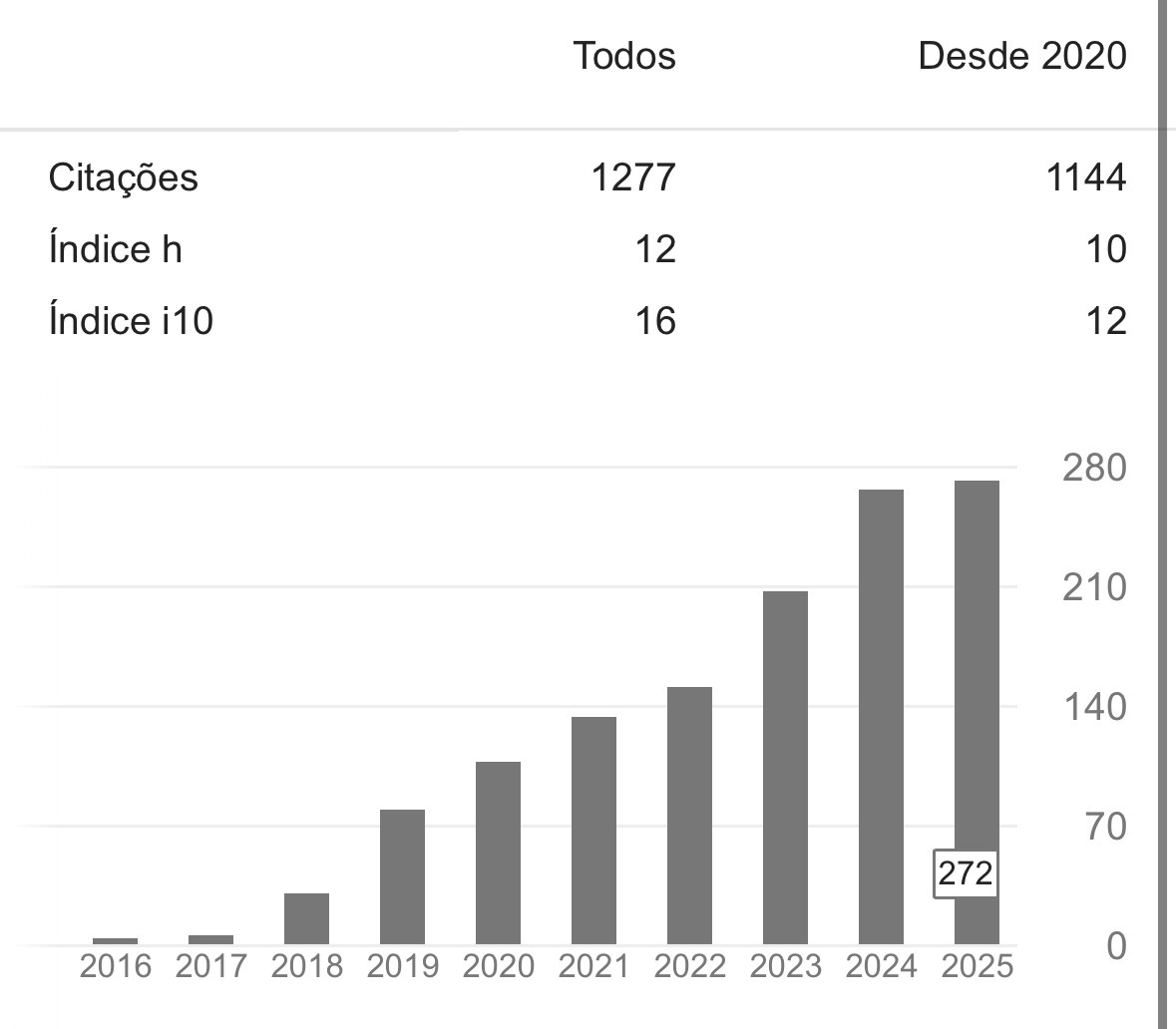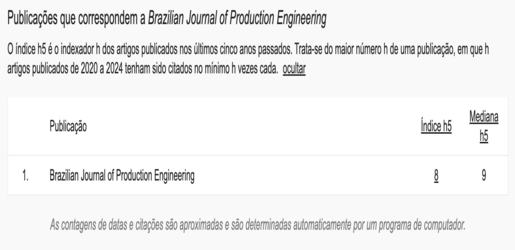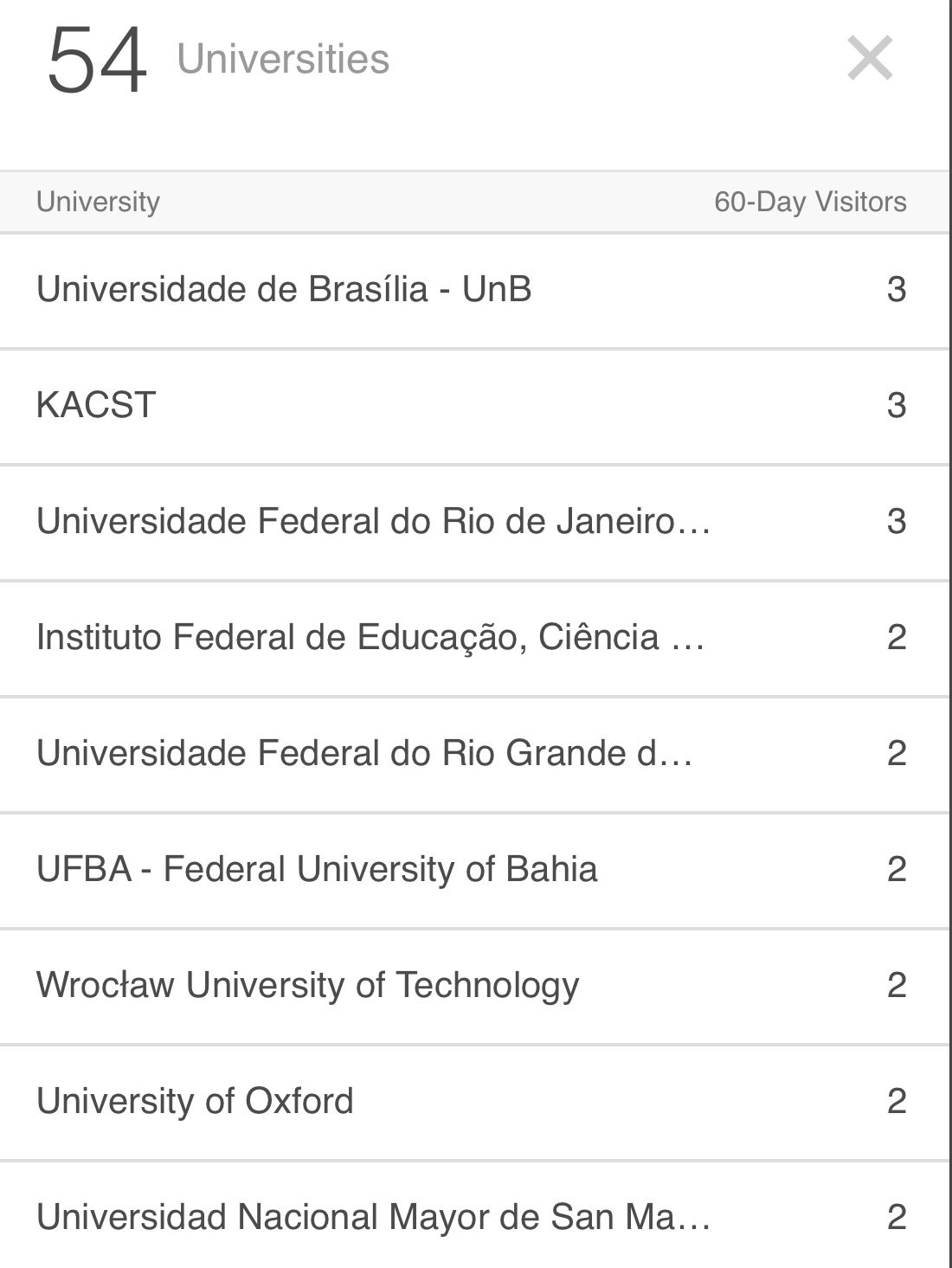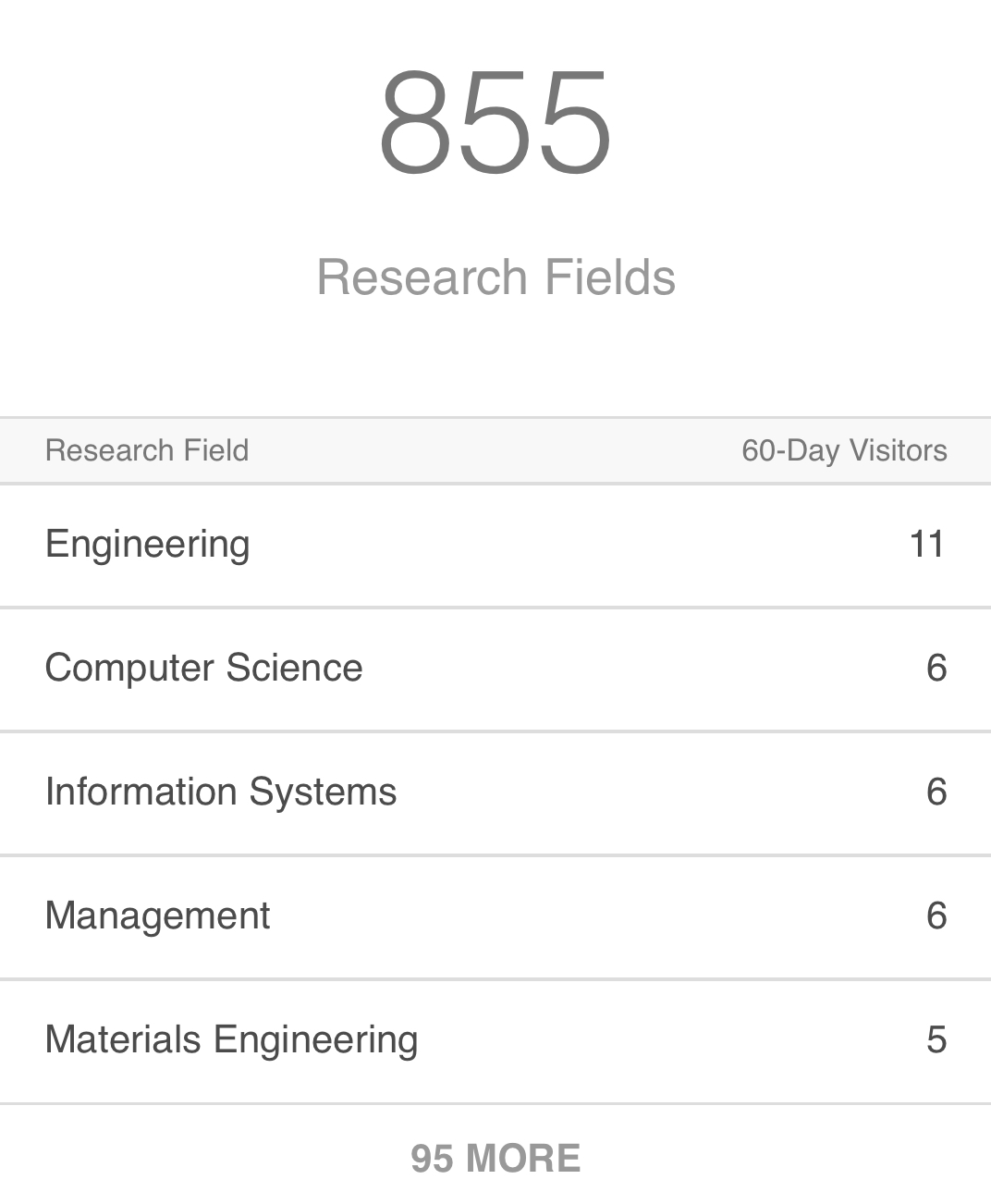Submissions
Submission Preparation Checklist
All submissions must meet the following requirements.
- TEXT FOLLOWS STYLE STANDARDS AND BIBLIOGRAPHIC REQUIREMENTS AS TO AMERICAN PSYCHOLOGICAL ASSOCIATION - APA.
- URLs for references have been provided when available.
- The files for submission are in Microsoft Word, OpenOffice or RTF format (as long as they do not exceed 2MB)
- TO OBTAIN THE MAGAZINE'S TEXT FORMATTING STANDARDS, CLICK BELOW: BJPE 2024 Template.
ENGINEERING EDUCATION
Universe of insertion of higher education in engineering (undergraduate, graduate, research and extension) and its related areas, from a systemic approach encompassing the management of educational systems in all its aspects: the training of people (faculty and staff) admnistrative technician); the pedagogical didactic organization, especially the pedagogical course project; teaching / learning methodologies and means. Due to the characteristics contained in this specialty, it can be considered as "Pedagogical Engineering", which seeks to consolidate these issues, as well as, it aims to present as concrete results of the activities developed, viable alternatives for organizing courses for the improvement of teaching activity, field in that the teacher is already intensely involved without finding an adequate structure to deepen his reflections and investigations.
- Engineer Training Study
- Study of the Development and Application of Research and Extension in Engineering
- Study of Ethics and Professional Practice in Engineering
- Pedagogical Practices and Evaluation Teaching-Learning Process in Engineering
- Management and Evaluation of Educational Systems for Engineering Courses

ENERGY
Oil, Gas & Renewable Energy. This study focuses on hydrocarbon exploration and production, particularly in the context of pre-salt reserves, which place Brazil among the countries with the largest global reserves. The program seeks advancements in areas such as reservoir geoengineering, porous media flow modeling, oil and gas recovery, production, and processing techniques, well drilling and completion, lifting and flow, refining, and characterization of oils and emulsions. It also includes the development and application of computer systems and electronic prototypes to support exploration and production, as well as integration with renewable energy technologies. Energy Efficiency addresses the challenges of the Brazilian energy sector, bringing together studies on the development, synthesis, and characterization of new materials, including nanostructured materials, for use in industry and power generation. It also involves the optimization and logistics of energy systems, process modeling and simulation, and process engineering focused on material characterization, the development and optimization of separations and refineries, and the use of chemical and biochemical reactors in biofuel production. Both lines prioritize contributions that advance technological innovation, sustainability, and the efficient use of energy resources.

AGRICULTURAL ENGINEERING
Agriculture is the sector responsible for a third of the Brazilian gross domestic product, this fact alone justifies a great demand for research, development and technological innovation as important tools for the integral and sustainable growth of Brazilian agribusiness. There are three factors linked to agricultural production: the physical, such as the soil and the climate; the human factor, which corresponds to labor in its development; and the economic factor, which refers to the value of the land and the level of technologies applied in production.
In this sense, we invite authors to submit contributions that can add significantly through theoretical and experimental research, development of agricultural production techniques, innovation of agricultural processes and technology transfer in the areas of phytotechnics, soils, agricultural systems engineering, rural development, rural economy, sustainable agriculture and family farming.

ENVIRONMENTAL ENGINEERING AND SUSTAINABILITY
Studies that address the planning and efficient use of natural resources in different production systems, the disposal and treatment of waste and effluents, as well as the implementation of environmental management systems aligned with social responsibility. Their scope includes research on environmental management and certification, natural and energy resource management, cleaner production strategies, eco-efficiency, and sustainability practices applied to industry and society. Research that integrates technological innovation, environmental preservation, and sustainable development is valued, promoting solutions that balance economic competitiveness and social and environmental responsibility.
Civil Engineering, Design and Architecture
The Civil Engineering, Design, and Architecture section publishes original scientific articles, reviews, and applied studies that contribute to the advancement of knowledge and practice in these areas, with a focus on innovation, sustainability, urban planning, materials, construction methods, product and spatial design, and interfaces with technology and the environment. Interdisciplinary research that promotes dialogue between engineering, design, and architecture, as well as studies addressing social, environmental, and economic impacts, is valued.
QUALITY ENGINEERING
It focuses on research into the planning, design, and control of quality management systems that integrate process management, a factual approach to decision-making, and the systematic use of quality tools. It includes studies on systems management, quality planning and control, standardization, auditing, and certification, as well as metrological organization and process and product reliability. Contributions that advance the consolidation of excellence and innovation practices are valued, supporting organizations in their pursuit of superior performance, competitiveness, and sustainability.
FOOD ENGINEERING & GASTRONOMY
It addresses research related to food transformation, preservation, and development, integrating scientific and technological knowledge with the cultural and social aspects of gastronomy. The focus is on improving production processes, increasing food shelf life and safety, reducing losses, and promoting sustainable practices throughout the food chain. Beyond its technological dimension, gastronomy is recognized as an expression of culture, identity, and tourism, capable of reviving traditions, strengthening collective memories, and consolidating Brazil as an international benchmark. Studies that combine innovation in food engineering with creative and responsible gastronomic techniques are valued, exploring the interface between science, culture, pleasure, hospitality, and sustainability.

AQUACULTURE & FISHERIES ENGINEERING
Fisheries and Aquaculture: Management, Policy and Innovation"
Fishing and Aquaculture is one of the main activities in Brazil and is practiced in all its extension, in a diversity of habitats, such as in the coastal region, on the high seas, rivers, lakes, mangroves, shores and reservoirs. This theme has been gaining space in the literature, providing a theoretical and consistent basis for the activity to develop, with innovative proposals for the countless challenges encountered today.

OPERATIONS & PRODUCTION PROCESS
Projects, operations and improvements to the systems that create and deliver the company's primary products (goods or services).
- Production and Operations Systems Management
- Production Planning, Programming and Control
- Maintenance management
- Factory and Industrial Installations Project: industrial organization, layout / physical arrangement
- Discrete and Continuous Productive Processes: procedures, methods and sequences
- Method Engineering

PRODUCT ENGINEERING
Set of tools and processes of design, planning, organization, decision and execution involved in the strategic and operational activities of development of new products, comprising from conception to the launch of the product and its withdrawal from the market with the participation of the various functional areas of the company .
- Product Development Management
- Product Development Process
- Product Planning and Design

ENGINEERING LABOUR
Project, improvement, implementation and evaluation of tasks, work systems, products, environments and systems to make them compatible with the needs, skills and abilities of people aiming at the best quality and productivity, preserving health and physical integrity. Their knowledge is used to understand the interactions between humans and other elements of a system. It can also be said that this area deals with the technology of the machine - environment - man - organization interface.
- Work Design and Organization
- Ergonomics
- Health and Safety Management Systems
- Occupational Accident Risk Management

ECONOMIC ENGINEERING
Formulation, estimation and evaluation of economic results to evaluate alternatives for decision making, consisting of a set of mathematical techniques that simplify economic comparison.
- Economic Management
- Costs management
- Investment Management
- Risk management

ORGANIZATIONAL ENGINEERING
Set of knowledge related to the management of organizations, encompassing in its topics strategic and operational planning, production strategies, entrepreneurial management, intellectual property, organizational performance assessment, information systems and their management and productive arrangements.
- Strategic and Organizational Management
- Project management
- Organizational Performance Management
- Information management
- Business Networks
- Innovation management
- Technology Management
- Knowledge management

SERVICE MANAGEMENT AND TOURISM
Service Management (SM) is an editorial line that focuses on the study, planning, operation and improvement of systems and processes related to the provision of services. This area explores strategic, operational and organizational aspects that contribute to the creation of value for customers and organizations.
PUBLIC MANAGEMENT
The relations between public organizations and people are increasingly complex, and this can be attributed to the existence of a large number of dimensions and variables that surround this important area of administration. For this reason, this special edition will address interdisciplinary themes on Public Management related to Politics, Planning and Public Governance, Technology, Innovation and Operations.

INFORMATION & KNOWLEDGE
Presentation of results of research works in the areas of:
- Semantic web, open data and connected data;
- Technologies applied to information and knowledge systems, products and services;
- Transformation and management of information and knowledge;
- Business Intelligence tools;
- Visualization of data, information and knowledge.

LOGISTICS
Techniques for dealing with the main issues involving transportation, handling, stock and storage of inputs and products, aiming at cost reduction, guarantee of product availability, as well as meeting the levels of customer requirements.
- Supply Chain Management
- Inventory Management
- Logistics Systems Design and Analysis
- Business logistics
- Transport and Physical Distribution
- Reverse logistic

TECHNICAL AND RESEARCH NOTES
Section designed for manuscripts with short and direct writing and aimed at elucidating or scientific technical positioning to meet specific demand, relevance or methodological issues exclusive to the other sections and scope of the BJPE.

OPERATIONAL RESEARCH
Resolution of real problems involving decision-making situations, through mathematical models usually computationally processed. It applies concepts and methods from other scientific disciplines to the conception, planning or operation of systems to achieve its objectives. Thus, it seeks to introduce elements of objectivity and rationality in the decision-making processes, without neglecting the subjective and organizational framework elements that characterize the problems.
- Modeling, Simulation and Optimization
- Mathematical Programming
- Decision-making processes
- Stochastic Processes
- Game Theory
- Demand Analysis
- Computational Intelligence

TECHNOLOGY AND INNOVATION IN HEALTH
Technological innovations for health are increasingly of paramount importance for advancing the treatment of various diseases. For this reason, this special edition will address several areas, to promote greater interdisciplinarity on the theme, themes on clinical engineering, hospital management, biomedical management, medical and pharmaceutical health, telemedicine, virtual reality in health, artificial intelligence in health, printer will be addressed 3d, among other related topics.

Copyright Notice
Authors who publish in the Brazilian Journal of Production Engineering (BJPE) agree to the following terms:
Authors retain copyright of their work and grant BJPE right of first publication, with the work simultaneously licensed under the Creative Commons Attribution-NonCommercial-ShareAlike 4.0 International (CC BY-NC-SA 4.0).
This allows others to copy, distribute, remix, adapt, and build upon the work non-commercially, as long as they give appropriate credit to the original author(s) and license their new creations under the same terms.
Authors are encouraged to disseminate and share their work in institutional repositories, academic social media, or personal pages, as long as they clearly indicate that the work was originally published in BJPE.
🔗 Learn more about the CC BY-NC-SA 4.0 license
Privacy Statement
The names, email addresses, and other personal data provided in this journal will be used exclusively for the editorial and scientific purposes of the Brazilian Journal of Production Engineering (BJPE), such as communication with authors, reviewers, readers, and editorial committee members.
This data will not be shared with third parties or used for other commercial or promotional purposes without the explicit consent of the data subjects.
BJPE is committed to protecting its users' personal data in accordance with the General Data Protection Law (Law No. 13,709/2018 - LGPD) and other applicable privacy and information security regulations.
By registering or submitting papers on this website, the user consents to the collection and processing of their data as described in this policy.
If you have any questions or requests regarding your personal data, you may contact the editorial team via the journal's official email address.



2.png)
